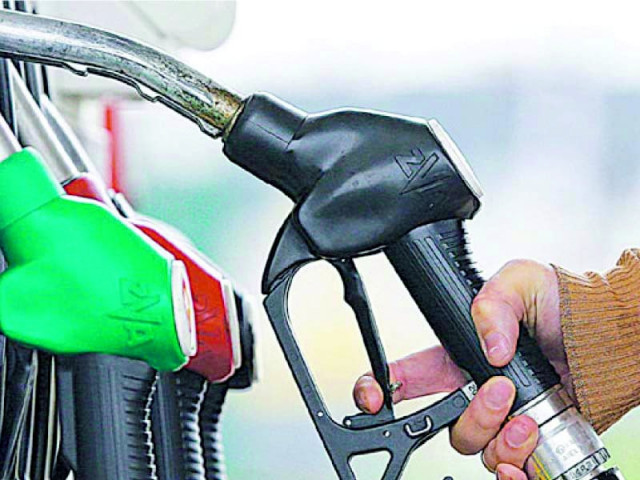Oil price cut to eat up Rs28 billion
Govt will bear this burden for keeping petroleum prices unchanged for a fortnight

The government is going to pay a heavy sum of Rs28 billion to keep petroleum product prices at current levels for a fortnight amid swelling global crude oil prices because of the ongoing Russia-Ukraine conflict.
Earlier, Prime Minister Imran Khan announced a reduction of Rs10 per litre in petroleum prices and that the new rates would remain in place till the FY23 budget.
The global crude oil prices have soared to around $112 per barrel from $94 a barrel before the start of Russia-Ukraine war.
The war has also led to a drop in the global stocks of diesel and other distillates to the lowest seasonal level since 2008.
According to the US Energy Information Administration, the distillate fuel oil inventories in the United States fell by 21% to 30 million barrels, which were below the pre-pandemic five-year seasonal average and at the lowest level since 2005.
The stocks in Europe dropped 8% to 35 million barrels, which were also below the pre-pandemic five-year average and at the lowest level since 2008.
The Oil Companies Advisory Council (OCAC), an association of the oil industry, had warned the government about the looming diesel shortage in Pakistan due to the depletion of stocks globally.
OCAC also mentioned that local banks had put oil companies in a high-risk category, refusing to grant loans, and requested the State Bank of Pakistan (SBP) governor to intervene in that regard.
The government would absorb an estimated hike in the high-speed diesel (HSD) price by Rs34.10 per litre and in the price of petrol by Rs22.28 a litre in the second half of March owing to the surge in global crude oil prices, according to energy experts.
The increase in HSD and petrol prices would also push up the price differential claims (PDC). The projected PDC on HSD is Rs34.10 a litre and on petrol is Rs22.28 per litre, which is said to take the total to Rs28 billion.
The projected increase in the price of jet fuel has been estimated at Rs26.34 per litre.
The increase in the ex-refinery price of kerosene oil has been estimated at Rs26.33 per litre and light diesel oil (LDO) - which is used in industries - at Rs29.29 a litre.
Kerosene oil is used in remote areas of Pakistan for cooking purposes where liquefied petroleum gas (LPG) is not available. Security forces also use it in far-off areas.
After Prime Minister Imran Khan’s announcement on February 28 of not raising prices of petroleum products till June 30, 2022, the government decided to give a PDC of Rs2.28 a litre, which the OCAC rejected.
On March 1, 2022, the OCAC in a letter to the Petroleum Division stated, “In order to avoid imminent shortage of petroleum products, we request that the PDC element should be removed by revising petroleum product prices immediately or alternatively a subsidy mechanism be found.”
OCAC claimed that the current PDC on HSD would create a receivable of around Rs1 billion during the first fortnight of March 2022.
“This will add to the previous receivables of Rs2.6 billion pertaining to November 1-4, 2021 and Rs10 billion pertaining to 2004-08, thereby further aggravating the financial challenges being faced by the industry,” the letter said.
The Petroleum Division has asked the Oil and Gas Regulatory Authority (Ogra) to calculate the PDC receivables of oil marketing companies/ refineries including the arrears of November 1-4, 2021 in the light of decision of PM Khan for a subsidy/ PDC on HSD at Rs2.28 a litre for the OMCs/ refineries till March 15, 2022.
Published in The Express Tribune, March 15th, 2022.
Like Business on Facebook, follow @TribuneBiz on Twitter to stay informed and join in the conversation.



















COMMENTS
Comments are moderated and generally will be posted if they are on-topic and not abusive.
For more information, please see our Comments FAQ